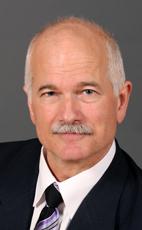Mr. Speaker, my question is for the Prime Minister.
On his recent foreign trip, foreign leaders had to point out to the Prime Minister that he had not kept his promise on foreign aid.
Students, meanwhile, of course know that he has not kept his promise on student debt. People trying to breathe clean air know that he has not kept his promise on pollution control. Cities know that he has not kept his 5¢ promise and the result is property taxes are going up.
Will the Prime Minister give an undertaking that he will keep all his promises before he starts to reduce taxes?

